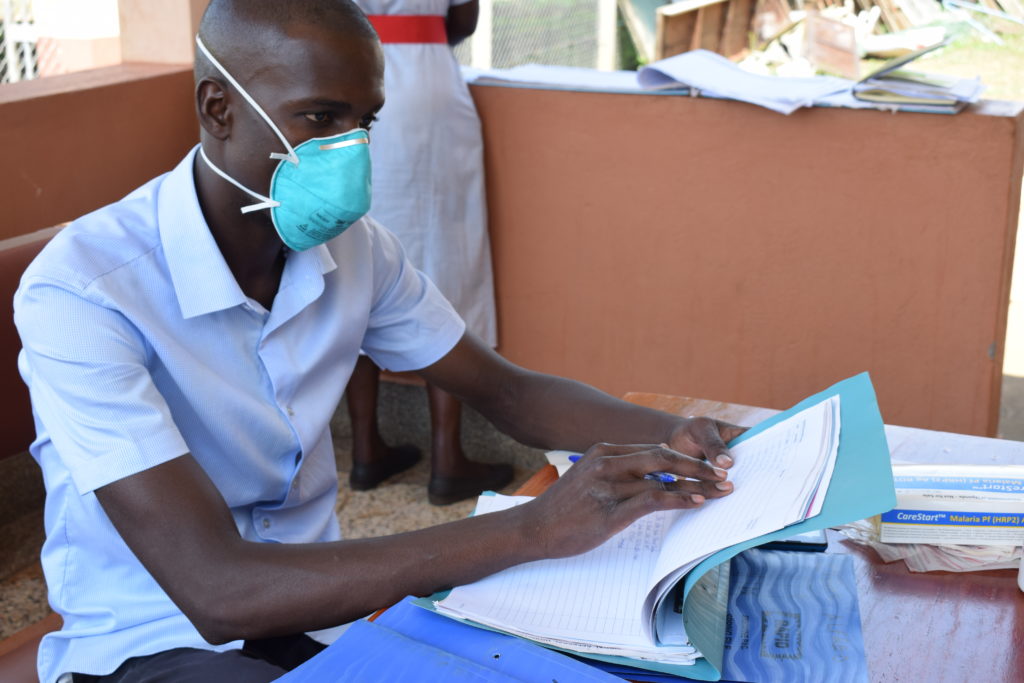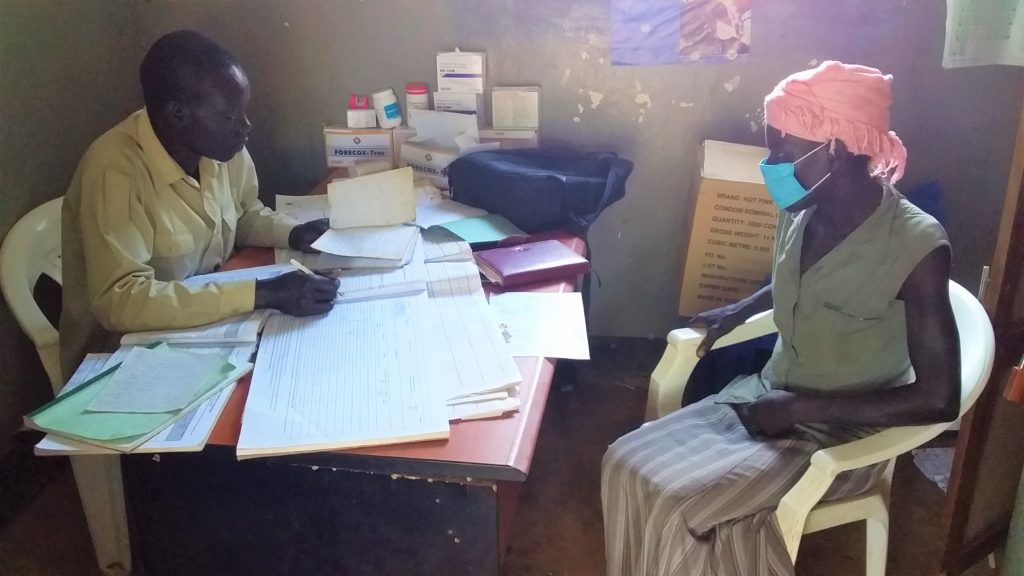Engaging Health Workers Improves TB Case Identification and Treatment Successes in Uganda
October 22nd, 2019 | story
Like most health facilities in the Lango sub-region, Anyeke HCIV in Oyam district grapples with a community that stigmatizes tuberculosis (TB), as well as low detection rates, treatment adherence, and completion rates. In the entire sub-region, only 42.7 percent of people know at least two signs and symptoms of TB.
“In Oyam here, there was a big problem of stigma about TB in the community, because people associate it with HIV infection and think it’s not curable. This caused clients already on treatment to drop out of treatment until some deliberate efforts were put in place to trace clients and to return them to care. Counselling and sensitization about TB treatment and cure needs to be done in the community to fight stigma,” says Alex Obong, District Tuberculosis and Leprosy Supervisor (DTLS), Oyam district.

To address the high TB burden at Anyeke HC IV, the USAID Regional Health Integration to Enhance Services-North, Lango (USAID RHITES-N, Lango) project worked with the facility to prioritize a number of solutions including training and mentorship for linkage facilitators on the use of intensified TB case finding (ICF) and orienting them on TB infection control practices and screening tools. Linkage facilitators are lay health workers who play a key role in providing clients with follow-up services.
Thomas Opio, a linkage facilitator at Anyeke HC IV trained by the project, is very passionate about putting his new skills to use. Thomas proactively supports the HIV clinic on a day-to-day basis by providing pre-treatment counseling and health education, following up on TB patients on treatment, and dispensing TB medicines.
“Every day I move to all units in the health facility to support TB screening and sputum collection from symptomatic TB cases. I make sure those who test positive start on TB treatment. I also follow up with their families to ensure they are screened and collect and test a sputum sample if they are symptomatic to help avoid the spread of TB within families and neighborhoods,” says Thomas about his work.

Thanks to linkage facilitators like Thomas and others working on the front lines of community outreach activities to raise awareness, educate people, and reduce the stigma associated with the disease, Anyeke HC IV confirmed 22 new TB cases in the third quarter of 2018. All clients were started on treatment and a year later, all 22 had a 100 percent treatment success rate.
The USAID RHITES-N, Lango team also conducts activities to improve active TB screening and case identification, which is critical given the sub-region’s high rate of multidrug-resistant TB (second highest incidence outside Kampala). The project team works with facility health care workers and linkage facilitators to use ICF at all points in the facility, including HIV clinics, and conduct contact tracing for households and close contacts of all diagnosed cases. The project also supports facilities to conduct community TB screenings for key populations and in “hot spots” where many TB cases have been diagnosed. The project also supported the integration of TB screenings into all community activities including VMMC camps and maternal and newborn health outreach, which contributed to significant improvement in TB case identification. This is supported by regular onsite mentorship and practical demonstrations on improving documentation and other infection control practices. These efforts have contributed to significant improvement in TB case identification and the quality of TB care at Anyeke HC IV and in the Lango sub-region.
The USAID RHITES-N, Lango project will continue to support and consolidate high impact facility and community TB interventions, leveraging existing community structures and platforms to improve TB case notification and treatment outcomes.
We strive to build lasting relationships to produce better health outcomes for all.